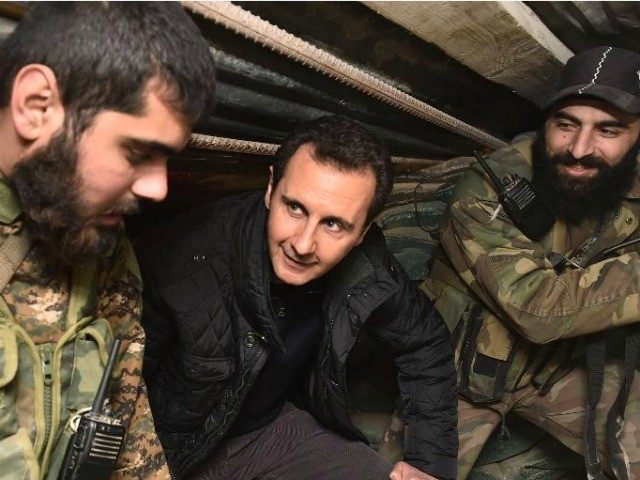Pro-Syrian opposition Turkey along with allies of the country’s dictator Russia and Iran are getting close to finalizing an agreement on establishing four de-escalation zones in Syria, according to a senior Kremlin negotiator.
Alexander Lavrentyev, who represents Russia’s interests in the ongoing discussions, told reporters Thursday that the three countries are debating details of the agreement at meetings in Astana, the capital of the former Soviet republic of Kazakhstan.
“Our main task at this international meeting on Syria is to finalize and establish four de-escalation zones,” declared Lavrentyev, reports Reuters. “We are very close to reaching an agreement on creating these four zones.”
The agreement is expected “to include provisions on the deployment of monitors — such as military police servicemen — in the four zones and, more specifically, on their borders,” notes Reuters.
Turkey and Syria share a border. There is also an international boundary between Iran and Turkey.
Representatives from the Bashar al-Assad regime, backed by Russia and Iran, and some Syrian opposition groups, supported by Turkey, are also participating in the discussions, which are expected to carry through Friday.
The recent meeting marks the sixth attempt to reach an agreement by Russia, Iran, and Turkey since discussions began in January.
When the last round of talks took place in July, the countries failed to reach an agreement after Turkey voiced objections.
That month, U.S. President Donald Trump and his Russian counterpart Vladimir Putin, joined by Syria’s next door neighbor Jordan and Israel did agree on a ceasefire, marking the first Trump-Putin truce to end the war in Syria, which started in March 2011.
Michael Ratney, the top U.S. Department of State (DOS) official in charge of Syria policy, traveled to Jordan in August to participate in closed-door negotiations with Moscow to prolong the pact, which reportedly continues to halt the fighting in southwest Syria.
Earlier this week, the U.K.-based Syrian Observatory for Human Rights, which uses a network of ground sources to monitor the war in Syria, has dismissed Russian government claims that the Assad regime controls 85 percent of Syria, reported Reuters.
Iran’s narco-terrorist proxy Hezbollah, a Lebanon-based Shiite group that has deployed thousands of fighters to join forces loyal to Assad, went as far as claiming victory for the Syrian regime.
Sayyed Hassan Nasrallah, the leader of Hezbollah, declared, “We have won in the [Syrian] war,” adding that only “scattered battles” remained to be fought, noted Reuters, citing the Lebanese newspaper al-Akhbar.
Nevertheless, the Observatory has argued that Assad has only re-conquered 48 percent of the country.
The monitor group did acknowledge that more than 70 percent of the country is no longer in the hands of Sunni terrorist groups, namely the Islamic State (ISIS/ISIL) and its rival al-Qaeda.
Of the 71 percent, 48 percent is under Assad’s control, and the U.S.-backed Syrian Democratic Forces (SDF), a Kurdish-Arab alliance led by the People’s Protection Units (YPG), has retaken the remaining 23 percent.
YPG troops are the armed wing of the Kurdish Democratic Union Party (PYD) that controls large swathes of northern Syria. The U.S.-backed SDF is not at war with Assad.
The U.S.-led coalition and local forces, including the Assad regime and its allies, have nearly pushed ISIS out of Iraq and Syria.
Meanwhile, al-Qaeda has grown stronger in Syria than in any other country and established the conditions there to set up an Islamic emirate as it continues to capitalize on the international focus to annihilate ISIS.

COMMENTS
Please let us know if you're having issues with commenting.